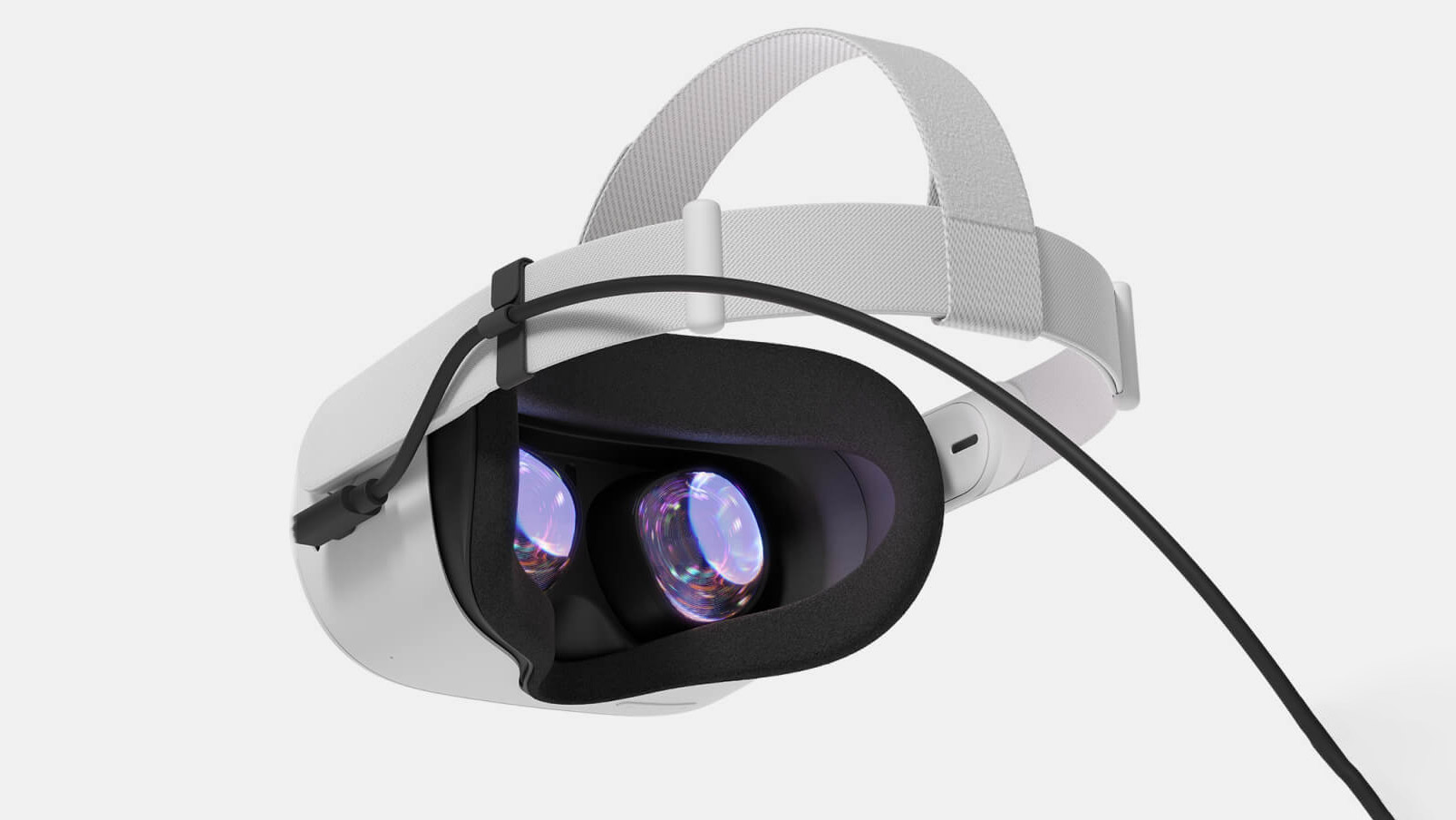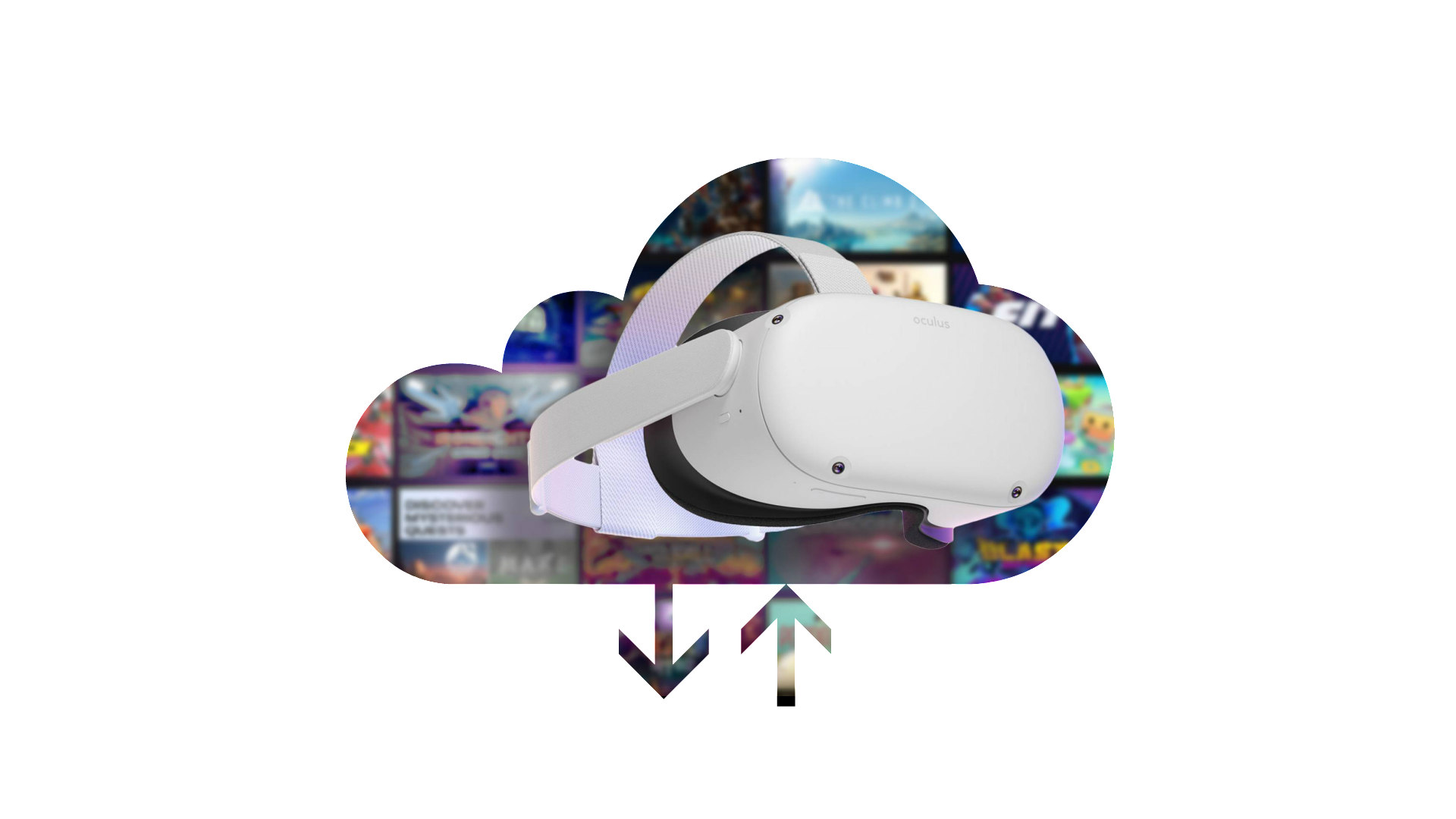Meta may be ramping up internal testing for its own first-party cloud gaming service which could let its latest standalone VR headset, Quest 2, play PC VR games without needing your own VR-ready computer.
Mention of the ‘Avalanche’ cloud PC VR streaming function was allegedly uncovered in v24 of the Quest firmware, which released in late 2020. It wasn’t until this April that data miner and Reddit user ‘Samulia’ dug into the firmware to find the following string, as reported by Tech analyst and YouTuber Brad Lynch:
AVALANCHE_CLOUD_GAMING_INFRA_ENABLED (“oculus_systemux:oculus_avalanche_cloud_gaming_infra_enabled”)
Samulia is also known for having extracted the Meta logo before it was officially unveiled in February, and a host of info scraped from successive firmware releases alluding to the company’s next VR headset, Project Cambria.
Lynch, known for the YouTube channel SadlyItsBradley, now alleges to have discussed the cloud PC VR streaming with someone who managed to gain access, and was able to remotely play a game of Asgard’s Wrath (2020), an Oculus PC exclusive, on Quest 2.
Someone contacted me (and posted on Reddit) claiming they had access to the Avalanche Cloud PC VR Streaming functionality Meta is internally testing
They stated they were able to get into a totally remote game of Asgards Wrath via a UK Wifi5 session https://t.co/Iulq6G24zX pic.twitter.com/gnZMkN0xzU
— Brad Lynch (@SadlyItsBradley) May 27, 2023
The screenshot above shows the in-headset Quest UI sporting a feature ostensibly inaccessible to normal users, with a launch button inside the ‘Experimental Features’ section that says: “Enable Avalanche (Alpha) – Start an Avalanche session”.
Furthermore, Lynch says that according to the user, the quality was “not very good,” although this might be chalked up to the fact that they’re based in United Kingdom and had to connect to a PC in the United States.

We’re unable to verify the authenticity of that information, however Meta may be carving out its own exclusive nook for Quest cloud gaming. In the past, Meta has taken steps to disallow cloud gaming apps from both its official Quest Store and App Lab, Meta’s app outlet featuring less stringent content submission guidelines. You can only download third-party cloud gaming services, like PlutoSphere, through sideloading tools such as SideQuest.
This might suggest Meta is currently looking to make its own PC VR cloud gaming service, much like it’s done in the past with its own flatscreen cloud gaming over the last two years. Notably, the flatscreen cloud gaming project is currently headed by former Oculus exec Jason Rubin, who is acutely aware of the inherent limitations of standalone headsets when it comes to packing in high-quality content. As of July 2023, Rubin also now heads all gaming content at Meta, including AR/VR production and Instant and Cloud Play Platform inside the Facebook app.
In an quarterly earnings in late 2020, Meta CEO Mark Zuckerberg addressed the intersection of Facebook’s cloud gaming and VR initiatives:
“Over the longer term, I think the VR piece will obviously come into [our gaming strategy] as well. Some of the cloud gaming stuff that we’re doing will, of course, be useful for VR as well, and we’re building a big community around that on Oculus. But [our cloud gaming service]… I do think will be a very exciting growth opportunity and ability to offer a lot of innovation over the coming years,” Zuckerberg said.
We’re hoping to learn more about Meta’s VR cloud gaming plans as well as its first upcoming mixed reality headset, Project Cambria, at the company’s annual Connect conference later in the year.
,
